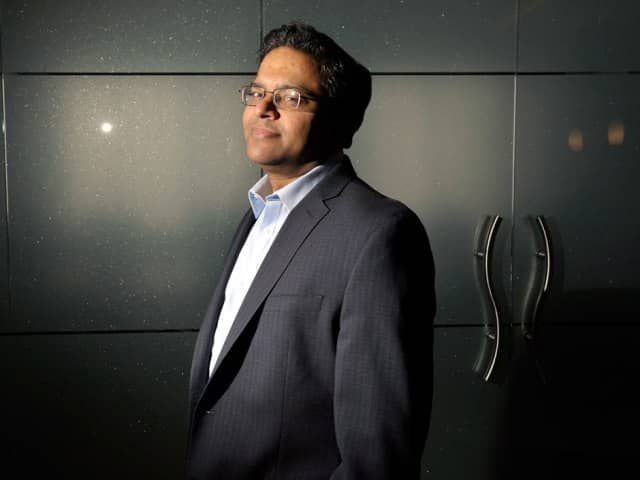Many brilliant minds in the world limit themselves to mundane jobs just for the fear of not being able to fulfill their responsibilities. Some of the most successful people that we know have actually quit their ordinary lives whether it was a good job or a degree at Harvard. Carl Rodrigues is another man on the list whose job as a successful IT consultant was not able to stop him from pursuing his dream.
What would you call a person who quit a successful and well-paying job for no serious idea at all? Crazy, insane, nuts, out of his mind are just a few of the things that a person like this would hear from others. Rodrigues from the Canadian city of Mississauga heard all of the same things. “Everybody thought I had gone completely nuts,” he said. “They were saying ‘what’s wrong with this guy? Is he having a hippy moment?”
The only thing Carl had in mind while dropping his job was that he wanted to build a computer product and there was not a single other idea in his head. He quit his job one fine morning in 2001 and shut himself in the basement of his house looking for ideas with only one thing in mind, “My goal was that I wanted to see what I could produce if I did something I really liked. I didn’t know what I was going to do, but I thought I would give it a shot.”
After a whole month of thinking nearly 24/7, Carl thought up of a software system that could let people control their laptops from their mobile phones. Soti was the name of the company that emerged, and the system began to grow. Another 12 months passed and one of UK’s largest supermarket groups reached out to Rodrigues. Instead of selling the system to the customers, the firm wanted to incorporate it into their operations which will allow the staff to communicate better.
Rodrigues explained the experience of the first ever call, “I was still in my basement when I got a call from the company, saying they would like to place an order. I don’t think they realized that they were talking to just one guy in a basement, so when the person asked to speak to someone in sales, I came back on the phone with a slightly different tone.” This was when the little firm got its first massive order of 20,000 units.
Soti is a name unheard by most, and the reason is that the company operates on a business to business model, and sells its software systems directly to companies. The annual revenues of Soti have reached $80m (£62m), and the company is self-sufficient without the need of any external investment, so the company is fully owned by Carl and his wife. Despite receiving countless takeover offers from companies including Microsoft, the CEO has refused to sell their company as they want to “become as big as they get.”
Carl Rodrigues was born in Pakistan to a Roman Catholic family and migrated to Canada along with his entire family including parents and four siblings at the age of 11. Rodrigues graduated from school and moved on to the University of Toronto to do a degree in computer science and mathematics. He later worked as a consultant for many years before finally launching Soti in 2001.
Now that Carl is 55, his company Soti is valued at over $1 billion (£770m) and the company employees are over 700 people in 22 countries to serve the 17,000 business customers all over the globe. The company obviously has moved out of the basement and split across two buildings in Mississauga bordering Toronto.
The reason for his success is attributed to his specialized approach by the technology journalist Martin Veitch, who has followed Rodrigues entire career.
“I think Soti is an example of a company that has succeeded by being focused on a business niche,” says Veitch. “A lot of its rivals are huge vendors that play in virtually every aspect of IT. That’s fine for those customers that like ‘one throat to choke,’ but for others, a company that is a specialist represents a better fit.”
Source: BBC

